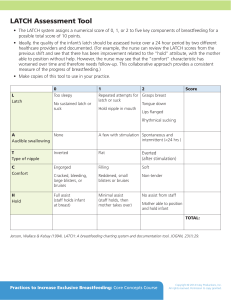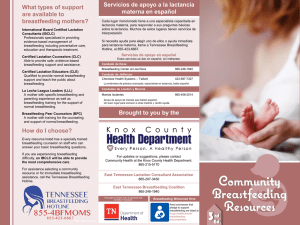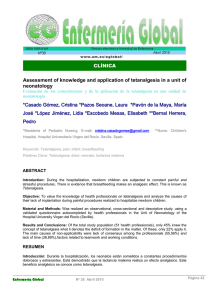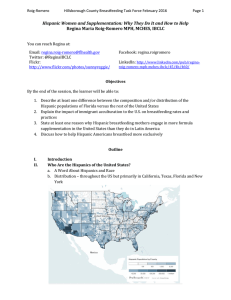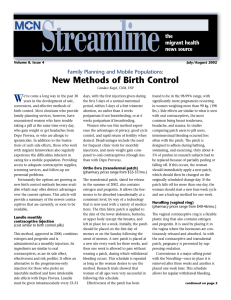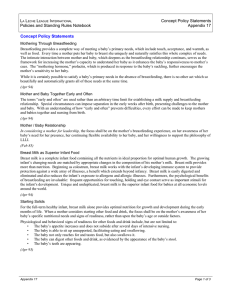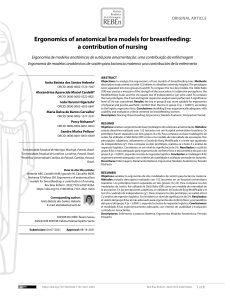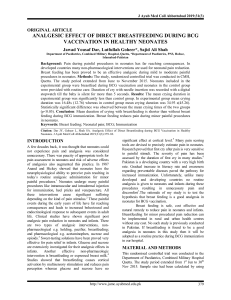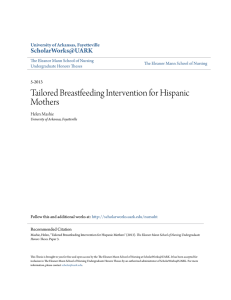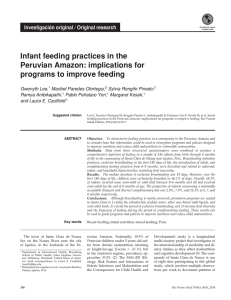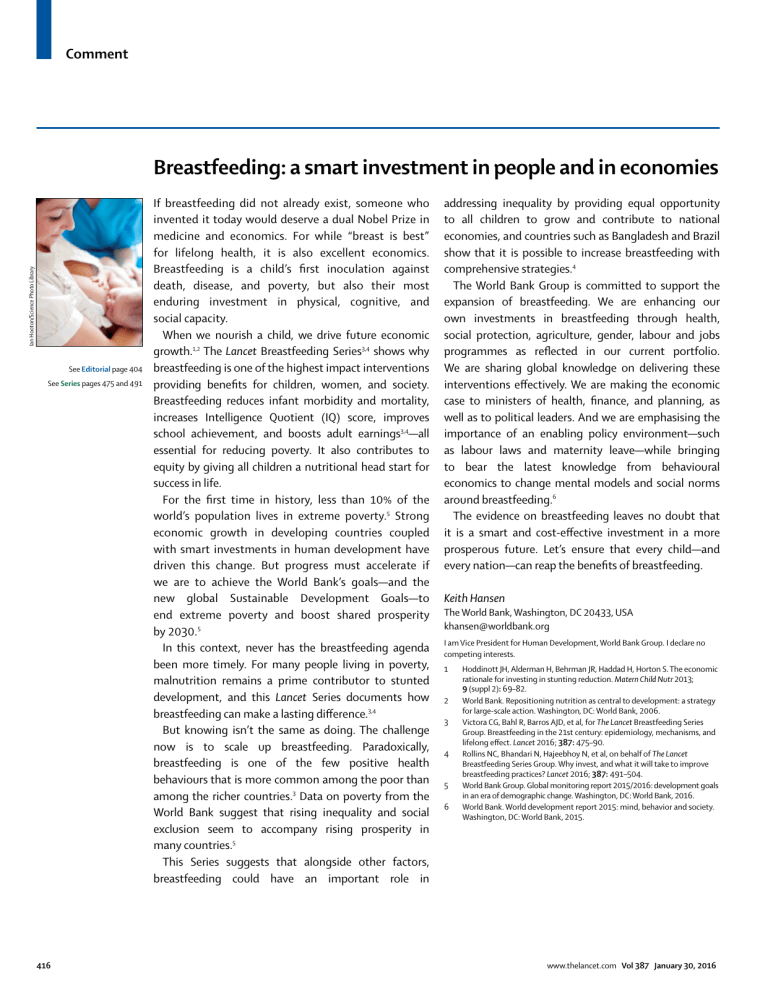
Comment Ian Hooton/Science Photo Library Breastfeeding: a smart investment in people and in economies See Editorial page 404 See Series pages 475 and 491 416 If breastfeeding did not already exist, someone who invented it today would deserve a dual Nobel Prize in medicine and economics. For while “breast is best” for lifelong health, it is also excellent economics. Breastfeeding is a child’s first inoculation against death, disease, and poverty, but also their most enduring investment in physical, cognitive, and social capacity. When we nourish a child, we drive future economic growth.1,2 The Lancet Breastfeeding Series3,4 shows why breastfeeding is one of the highest impact interventions providing benefits for children, women, and society. Breastfeeding reduces infant morbidity and mortality, increases Intelligence Quotient (IQ) score, improves school achievement, and boosts adult earnings3,4—all essential for reducing poverty. It also contributes to equity by giving all children a nutritional head start for success in life. For the first time in history, less than 10% of the world’s population lives in extreme poverty.5 Strong economic growth in developing countries coupled with smart investments in human development have driven this change. But progress must accelerate if we are to achieve the World Bank’s goals—and the new global Sustainable Development Goals—to end extreme poverty and boost shared prosperity by 2030.5 In this context, never has the breastfeeding agenda been more timely. For many people living in poverty, malnutrition remains a prime contributor to stunted development, and this Lancet Series documents how breastfeeding can make a lasting difference.3,4 But knowing isn’t the same as doing. The challenge now is to scale up breastfeeding. Paradoxically, breastfeeding is one of the few positive health behaviours that is more common among the poor than among the richer countries.3 Data on poverty from the World Bank suggest that rising inequality and social exclusion seem to accompany rising prosperity in many countries.5 This Series suggests that alongside other factors, breastfeeding could have an important role in addressing inequality by providing equal opportunity to all children to grow and contribute to national economies, and countries such as Bangladesh and Brazil show that it is possible to increase breastfeeding with comprehensive strategies.4 The World Bank Group is committed to support the expansion of breastfeeding. We are enhancing our own investments in breastfeeding through health, social protection, agriculture, gender, labour and jobs programmes as reflected in our current portfolio. We are sharing global knowledge on delivering these interventions effectively. We are making the economic case to ministers of health, finance, and planning, as well as to political leaders. And we are emphasising the importance of an enabling policy environment—such as labour laws and maternity leave—while bringing to bear the latest knowledge from behavioural economics to change mental models and social norms around breastfeeding.6 The evidence on breastfeeding leaves no doubt that it is a smart and cost-effective investment in a more prosperous future. Let’s ensure that every child—and every nation—can reap the benefits of breastfeeding. Keith Hansen The World Bank, Washington, DC 20433, USA khansen@worldbank.org I am Vice President for Human Development, World Bank Group. I declare no competing interests. 1 2 3 4 5 6 Hoddinott JH, Alderman H, Behrman JR, Haddad H, Horton S. The economic rationale for investing in stunting reduction. Matern Child Nutr 2013; 9 (suppl 2): 69–82. World Bank. Repositioning nutrition as central to development: a strategy for large-scale action. Washington, DC: World Bank, 2006. Victora CG, Bahl R, Barros AJD, et al, for The Lancet Breastfeeding Series Group. Breastfeeding in the 21st century: epidemiology, mechanisms, and lifelong effect. Lancet 2016; 387: 475–90. Rollins NC, Bhandari N, Hajeebhoy N, et al, on behalf of The Lancet Breastfeeding Series Group. Why invest, and what it will take to improve breastfeeding practices? Lancet 2016; 387: 491–504. World Bank Group. Global monitoring report 2015/2016: development goals in an era of demographic change. Washington, DC: World Bank, 2016. World Bank. World development report 2015: mind, behavior and society. Washington, DC: World Bank, 2015. www.thelancet.com Vol 387 January 30, 2016

